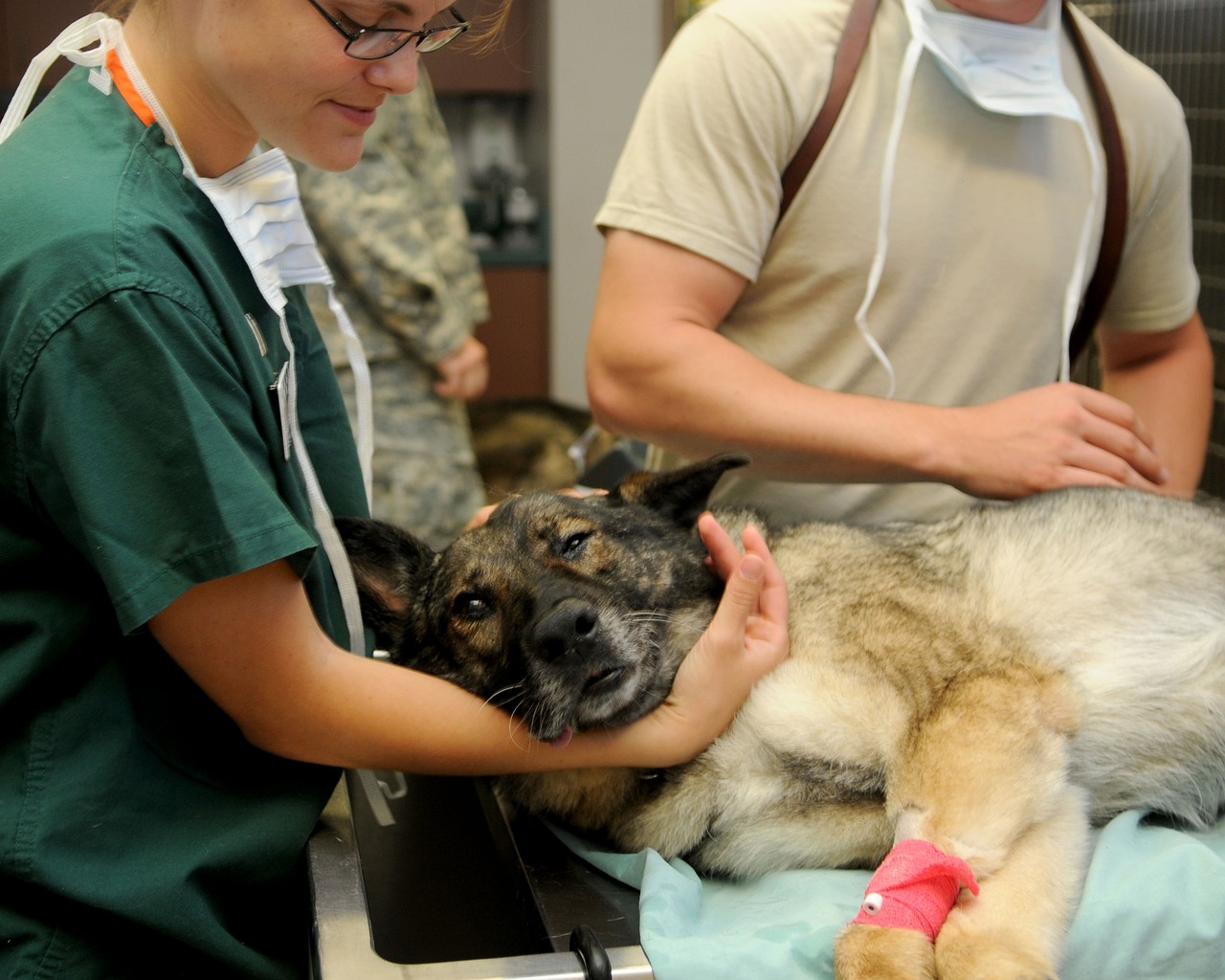Vision is vital to a pet’s quality of life, and eye conditions can escalate quickly without specialist intervention. From corneal ulcers to cataracts, glaucoma, and retinal diseases, ophthalmology requires a depth of expertise beyond general practice. Hiring a veterinary ophthalmologist allows hospitals and specialty centers to diagnose and treat complex eye conditions, reducing referral leakage, improving patient outcomes, and strengthening client trust.
Pulivarthi Group is a specialized veterinary ophthalmologist staffing agency dedicated to connecting employers with board-certified eye specialists and experienced ophthalmology-trained veterinarians. Whether you need locum veterinary ophthalmologist staffing for surgical coverage, temporary support during high-demand periods, or permanent specialists to build your ophthalmology department, we deliver tailored veterinary ophthalmology staffing solutions. As a trusted veterinary ophthalmology recruitment agency, our goal is to provide pre-vetted candidates who integrate seamlessly into your practice, elevate your diagnostic capabilities, and enhance patient care.
Why hire a Veterinary Ophthalmologist
Pets with eye diseases require precise diagnosis and rapid treatment. General practitioners may manage basic cases like conjunctivitis, but advanced ophthalmic conditions—such as cataracts, glaucoma, or lens luxation—demand specialist expertise. By hiring a veterinary ophthalmologist, hospitals gain the ability to perform advanced diagnostics (slit-lamp biomicroscopy, tonometry, fundus exams) and surgical procedures, including cataract extraction, corneal grafting, and retinal reattachment.
Clinically, this reduces the risk of vision loss, improves patient quality of life, and builds long-term client trust. Financially, ophthalmology services generate significant revenue, from advanced diagnostics to high-value surgeries. Without an in-house ophthalmologist, hospitals frequently refer cases, losing both income and patient continuity. Clients increasingly expect referral or specialty hospitals to have eye care expertise in-house.
Ophthalmologists also support broader teams. They provide consultations to internists, surgeons, and emergency veterinarians, ensuring comprehensive care. With their ability to interpret advanced imaging of the eye and manage systemic diseases with ocular manifestations, they elevate overall patient outcomes.
Benefits of hiring a veterinary ophthalmologist include:
-
Advanced diagnostics and surgical care for eye diseases.
-
Reduced referral leakage and retained revenue.
-
Stronger client trust through specialty services.
-
Improved collaboration with internal teams.
-
Enhanced reputation as a full-service hospital.
For ophthalmology specialty standards, see American College of Veterinary Ophthalmologists (ACVO) (acvo.org).
Types of Veterinary Ophthalmologist Roles
Veterinary ophthalmology encompasses a range of roles, each suited to different hospital needs. A general ophthalmologist manages common ocular conditions, diagnostics, and basic surgeries such as enucleations or conjunctival grafts. Board-certified ophthalmologists (DACVO) provide advanced surgical expertise, including cataract surgery with phacoemulsification, corneal transplants, and retinal procedures.
Hospitals needing flexibility often turn to locum veterinary ophthalmologists, who cover temporary gaps for surgical blocks or staff leave. Temporary ophthalmologists are ideal for seasonal demand, such as during allergy seasons when ocular cases spike. Contingent staffing supports hospitals with shift-based or project-based needs, like cataract surgery days.
For specialty centers, ophthalmology service-line leaders or directors can build and scale dedicated eye departments, mentoring junior staff and guiding investment in equipment like slit lamps, indirect ophthalmoscopes, and operating microscopes. Veterinary eye specialists also play a vital role in supporting teaching hospitals, telemedicine consultations, and cross-departmental case management.
Types of veterinary ophthalmologist roles include:
-
General Veterinary Ophthalmologist
-
Board-Certified Ophthalmologist (DACVO)
-
Locum Veterinary Ophthalmologist
-
Temporary or Contingent Ophthalmologist
-
Ophthalmology Service-Line Leader/Director
-
Veterinary Eye Specialist for Telemedicine/Consults
Pulivarthi Group Veterinary Ophthalmology Staffing Services
Recruiting ophthalmologists is challenging due to limited supply and high demand. Pulivarthi Group provides specialized veterinary ophthalmology staffing solutions to ensure hospitals can secure the expertise they need. We tailor services to match your hospital’s caseload, equipment, and service goals.
For stability, our permanent veterinary ophthalmologist staffing places full-time specialists who anchor your eye department. For short-term needs, our temporary veterinary ophthalmologist staffing provides predictable coverage during staff absences or seasonal demand. Locum staffing delivers board-certified ophthalmologists for surgical days or high-demand weeks. Contingent staffing offers flexible solutions for hospitals running specific procedure blocks, such as cataract or corneal surgery sessions.
We also support executive recruitment, sourcing department leaders or service-line builders who can launch and expand ophthalmology programs. Each candidate is pre-screened for credentials, clinical skill, and communication ability, ensuring they meet your hospital’s needs.
Our staffing services include:
-
Permanent Veterinary Ophthalmologist Staffing
-
Temporary Veterinary Ophthalmologist Staffing
-
Locum Veterinary Ophthalmologist Staffing
-
Contingent Ophthalmologist Staffing
-
Veterinary Ophthalmology Technician Staffing
-
Executive & Service-Line Leader Recruitment
Where Employers Find Veterinary Ophthalmologists
Employers often struggle to recruit ophthalmologists due to their specialized training path. General job boards provide limited success, as few ophthalmologists apply through these channels. Veterinary residency programs and ACVO networks are primary pipelines, though competition for graduates is fierce. Specialty conferences and continuing education events also provide valuable networking opportunities.
For faster, more efficient results, hospitals turn to a veterinary ophthalmology employment agency like Pulivarthi Group. We maintain a pool of ophthalmologists, both board-certified and board-eligible, and connect them with employers in need. By focusing exclusively on pre-vetted candidates, we shorten hiring cycles and reduce lost revenue from unfilled positions.
Primary sourcing channels include:
-
Specialized staffing agencies (Pulivarthi Group)
-
ACVO residency programs and networks
-
Specialty conferences and CE programs
-
General veterinary job boards
Hiring Challenges and Solutions
Recruiting veterinary ophthalmologists comes with distinct challenges. The first is scarcity—DACVO-certified ophthalmologists are in short supply. Employers must offer competitive compensation, growth opportunities, and flexible scheduling to remain attractive.
Assessing skill is another challenge. Ophthalmology requires advanced microsurgical abilities, which are difficult to evaluate through resumes alone. Employers should request surgical logs, case portfolios, or working interviews to observe technique. Culture fit is also critical, as ophthalmologists must collaborate with surgeons, internists, and emergency veterinarians. Peer interviews and technician feedback are essential to ensure alignment.
Turnover risk is a concern if ophthalmologists are overworked or lack equipment. Mitigation strategies include investing in modern surgical tools, ensuring strong technician support, and offering predictable scheduling.
Key challenges include:
-
Limited supply of board-certified ophthalmologists.
-
Evaluating microsurgical skills effectively.
-
Ensuring team collaboration and communication.
-
Preventing turnover from workload or equipment issues.
For certification pathways, see ACVO training and diplomate standards (acvo.org).
Qualifications and Licensing Checklist
Veterinary ophthalmologists must meet all general veterinary requirements, plus specialized training in ophthalmology. Minimum requirements include a DVM/VMD degree, NAVLE passage, and an active state license. DEA registration is required for prescribing controlled substances, including anesthetics used in ophthalmic surgery.
The most critical credential is board certification through the American College of Veterinary Ophthalmologists (DACVO). This certification requires residency completion and successful board examinations, confirming expertise in diagnostics and surgery. Employers should also verify liability coverage, CE participation, and OSHA compliance. For telemedicine consultations, familiarity with digital imaging platforms and telehealth standards is essential.
Qualifications include:
-
DVM/VMD and NAVLE passage.
-
Active state veterinary license.
-
DEA registration for controlled substances.
-
DACVO board certification (preferred).
-
Liability insurance and OSHA compliance.
-
CE in ophthalmology and surgical techniques.
-
Telemedicine platform experience.
Sample Veterinary Ophthalmologist Job Description
A clear and detailed job description is essential for attracting top ophthalmology talent. Unlike general veterinarians, ophthalmologists require advanced residency training, microsurgical skills, and board certification. A strong description should highlight caseload expectations, available equipment, and collaboration opportunities with other specialists.
Role Summary
We are seeking a Board-Certified Veterinary Ophthalmologist (DACVO) to join our specialty hospital. The successful candidate will provide advanced diagnostic and surgical care for a variety of ocular conditions, collaborate with a multi-specialty team, and contribute to the hospital’s reputation for excellence in specialty medicine.
Key Responsibilities
-
Perform advanced ophthalmic diagnostics (slit-lamp, tonometry, fundus exams).
-
Conduct microsurgical procedures, including cataract surgery, corneal grafts, and retinal surgery.
-
Collaborate with other specialists (internal medicine, surgery, emergency).
-
Educate clients on treatment options and long-term ocular care.
-
Mentor veterinarians and technicians in ophthalmic procedures.
-
Maintain accurate and timely medical records.
Qualifications
-
DVM/VMD and NAVLE passage.
-
Active state license and DEA registration.
-
Board certification (DACVO).
-
Strong surgical, diagnostic, and client communication skills.
For posting guidelines, see AVMA career resources (avma.org).
Sample Interview Questions for Veterinary Ophthalmologists
Interviewing an ophthalmologist requires assessing both surgical precision and communication style. Employers should use a mix of technical, behavioral, and situational questions.
Examples include:
-
Describe your approach to managing a dog with glaucoma. Which diagnostics and treatments would you prioritize?
-
How do you perform phacoemulsification for cataract surgery, and what are the most common complications?
-
Tell us about a time when a client disagreed with your surgical recommendation. How did you handle it?
-
What recent CE or research most influenced your ophthalmology practice?
-
How do you collaborate with internists when systemic disease manifests as ocular pathology?
-
What strategies do you use to mentor junior veterinarians or technicians in ophthalmology?
For structured specialty interviews, consult American College of Veterinary Ophthalmologists (ACVO) resources (acvo.org).
When to Hire a Veterinary Ophthalmologist
Hospitals often realize the need for an ophthalmologist when they repeatedly refer out eye cases. Frequent referrals for cataracts, corneal ulcers, or retinal disease represent not only lost revenue but also client dissatisfaction. If patients must wait weeks or travel far for ophthalmology appointments, adding in-house expertise creates a competitive advantage.
Another trigger is hospital expansion. Specialty centers and referral hospitals are expected to provide ophthalmology services, particularly if they already offer surgery, internal medicine, or neurology. Emergency departments also benefit from ophthalmologists who can handle urgent ocular trauma.
Key signals for hiring include:
-
High referral leakage for ophthalmology cases.
-
Client demand for in-house eye care.
-
Long wait times for external ophthalmology services.
-
Expansion into specialty or referral medicine.
-
Emergency caseload requiring ocular intervention.
For specialty demand trends, see Veterinary Information Network (VIN) (vin.com).
How to Evaluate Veterinary Ophthalmologist Skills
Ophthalmology requires a blend of diagnostic acumen and surgical finesse. Employers should request surgical case logs to review experience with cataracts, corneal grafts, and retinal surgeries. Working interviews provide insight into procedural techniques, client communication, and collaboration with technicians.
Peer-review of anonymized case reports is also valuable to assess diagnostic accuracy. For surgical candidates, observing simulated procedures or reviewing video logs demonstrates microsurgical precision. Evaluating communication is critical, as ophthalmologists must explain complex treatments to clients in clear, accessible terms.
Evaluation methods include:
-
Review of surgical case logs and portfolios.
-
Peer-review of diagnostic reports.
-
Working interviews with shadow shifts.
-
Simulation or surgical video assessments.
-
Technician and client communication feedback.
For certification verification, see AAVSB licensure database (aavsb.org).
Compensation and Rewards for Veterinary Ophthalmologists
Ophthalmologists are among the most highly compensated veterinary specialists due to their advanced skills and limited availability. Typical compensation includes a base salary with production incentives, reflecting high-value surgeries like cataract extraction.
Hospitals should also offer CE allowances, ACVO membership reimbursement, and relocation packages. Sign-on bonuses are common due to demand. Flexible scheduling and access to advanced surgical equipment are essential to attract and retain talent.
Compensation packages often include:
-
Base salary plus production pay.
-
CE and ACVO membership reimbursement.
-
Sign-on and relocation bonuses.
-
Comprehensive health and wellness benefits.
-
Modern equipment and surgical facilities.
For benchmarks, see AVMA veterinary salary reports (avma.org/resources-tools/reports).
SOPs Worth Formalizing in Veterinary Ophthalmology
Ophthalmology departments benefit from clear Standard Operating Procedures (SOPs) that ensure consistency and patient safety. Critical SOPs include anesthesia protocols tailored for ophthalmic microsurgery, instrument sterilization standards, and pre-op/post-op client communication templates.
Ophthalmology SOPs should also define imaging protocols for tonometry, slit-lamp biomicroscopy, and fundus exams. Controlled substance compliance is essential for anesthetics and pain management, requiring adherence to DEA guidelines (deadiversion.usdoj.gov). Finally, surgical scheduling SOPs streamline case flow and technician assignments.
Essential SOPs include:
-
Anesthesia protocols for ophthalmic surgeries.
-
Imaging and diagnostic protocols.
-
Sterilization and infection control standards.
-
Controlled substance management.
-
Client communication and discharge instructions.
Retention Strategies for Veterinary Ophthalmologists
Due to limited supply, retaining ophthalmologists is as important as recruiting them. Employers should provide predictable surgical scheduling to ensure efficiency and reduce stress. Strong technician support and modern surgical equipment are essential to maintain satisfaction.
Professional growth opportunities are another powerful retention tool. Supporting CE, conference attendance, and research participation keeps ophthalmologists engaged. Recognition, such as celebrating successful cases and involving specialists in hospital strategy, builds loyalty.
Retention strategies include:
-
Predictable surgical scheduling.
-
Adequate technician support.
-
Access to modern ophthalmic equipment.
-
CE, conference, and research support.
-
Recognition and leadership opportunities.
For workforce planning, see American Association of Veterinary Clinicians (AAVC) (vetclinicians.org).
How Pulivarthi Group Delivers Veterinary Ophthalmology Staffing
Pulivarthi Group specializes in veterinary ophthalmology recruitment, connecting hospitals with board-certified ophthalmologists, locum specialists, and service-line leaders. Our intake process defines your hospital’s caseload, equipment, and scheduling needs.
We source candidates through ACVO networks, residency programs, and passive outreach. Each candidate undergoes screening for credentials, surgical skills, and communication ability. We provide calibrated shortlists rather than long applicant lists, saving employers time.
We also coordinate interviews, case reviews, credentialing, and onboarding logistics. Post-placement, we track outcomes and adjust strategies to continuously meet your hospital’s evolving needs. Whether you require locum ophthalmology coverage or a permanent DACVO to anchor your eye department, Pulivarthi Group ensures fast, reliable results.
Ready to Hire a Veterinary Ophthalmologist?
Ophthalmology is one of the most in-demand veterinary specialties, and securing the right talent can transform your hospital’s services. By hiring a veterinary ophthalmologist, you gain the ability to manage advanced ocular conditions in-house, retain revenue, and build stronger client trust.
Pulivarthi Group is your dedicated veterinary ophthalmology employment agency, providing permanent, locum, temporary, and contingent staffing solutions. With pre-vetted candidates and a streamlined process, we ensure your hospital gains immediate access to specialists who deliver exceptional care.
Don’t let referrals or unmet client demand slow your growth. Book a meeting with Pulivarthi Group today to access a tailored shortlist of ophthalmologists ready to elevate your practice.














